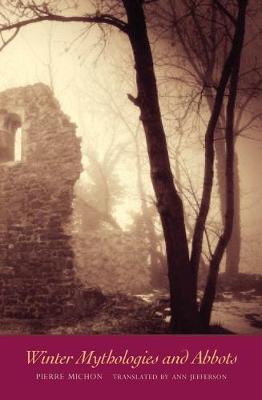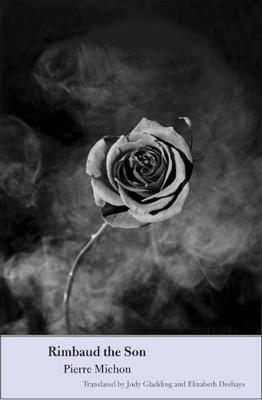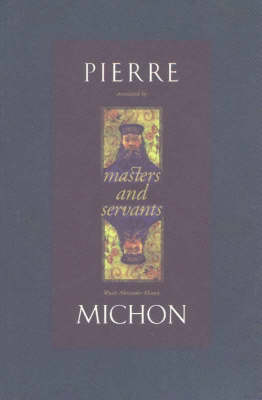World Republic of Letters (Yale)
4 total works
Michon's exquisite short narratives transport us to the heart of the Middle Ages as witnesses to the double-edged power of belief
This welcome volume brings to English-language readers two beautifully crafted works by the internationally acclaimed French author Pierre Michon. Populated by distant and little-known figures-Irish and French monks, saints, and scientists in Winter Mythologies; Benedictine monks in the Vendee region of France in Abbots-the tales frequently draw on obscure histories and other literary sources.
Michon brings his characters to life in spare, evocative prose. Each, in his or her own way, exemplifies a power of belief that brings about an achievement-or catastrophe-in the real world: monasteries are built upon impossibly muddy wastes, monks acquire the power of speech, lives are taken, books are written, saints are created on the flimsiest of evidence. Michon's exploration in ancient archives has led him to the discovery of such often deluded figures and their deeds, and his own exceptional powers bestow upon them a renewed life on the written page. This in turn is an example of the power of belief, which for Michon is what makes literature itself possible. Winter Mythologies and Abbots are meant to be read slowly, to be savored, to be mined for the secrets Michon has to tell.
This welcome volume brings to English-language readers two beautifully crafted works by the internationally acclaimed French author Pierre Michon. Populated by distant and little-known figures-Irish and French monks, saints, and scientists in Winter Mythologies; Benedictine monks in the Vendee region of France in Abbots-the tales frequently draw on obscure histories and other literary sources.
Michon brings his characters to life in spare, evocative prose. Each, in his or her own way, exemplifies a power of belief that brings about an achievement-or catastrophe-in the real world: monasteries are built upon impossibly muddy wastes, monks acquire the power of speech, lives are taken, books are written, saints are created on the flimsiest of evidence. Michon's exploration in ancient archives has led him to the discovery of such often deluded figures and their deeds, and his own exceptional powers bestow upon them a renewed life on the written page. This in turn is an example of the power of belief, which for Michon is what makes literature itself possible. Winter Mythologies and Abbots are meant to be read slowly, to be savored, to be mined for the secrets Michon has to tell.
This spare, unforgettable novel is Pierre Michon's luminous exploration of the mysteries of desire. A young teacher takes his first job in a sleepy French town. Lost in a succession of rainy days and sleepless nights, he falls under the spell of a town resident, a woman of seductive beauty and singular charm.
Yvonne. Yvonne. "Everything about her screamed desire...setting something in motion while settling a fingertip to the counter, turning her head slightly, gold earrings brushing her cheek while she watched you or watched nothing at all; this desire was open, like a wound; and she knew it, wore it with valor, with passion." Michon probes the destructive powers of passion and the consuming need for love in this heartbreaking novel.
Yvonne. Yvonne. "Everything about her screamed desire...setting something in motion while settling a fingertip to the counter, turning her head slightly, gold earrings brushing her cheek while she watched you or watched nothing at all; this desire was open, like a wound; and she knew it, wore it with valor, with passion." Michon probes the destructive powers of passion and the consuming need for love in this heartbreaking novel.
A radiant work of fiction that illuminates the life and art of Rimbaud in a way that no biography could
Rimbaud the Son, widely celebrated upon its publication in France, investigates the life of a writer, the writing life, and the art of life-writing. Pierre Michon in his groundbreaking work examines the storied life of the French poet Arthur Rimbaud by means of a new literary genre: a meditation on the life of a legend as witnessed by his contemporaries, those who knew him before the legends took hold. Michon introduces us to Rimbaud the son, friend, schoolboy, renegade, drunk, sexual libertine, visionary, and ultimately poet. Michon focuses no less on the creative act: What presses a person to write? To pursue excellence? The author dramatizes the life of a genius whose sufferings are enormous while his ambitions are transcendent, whose life is lived with utter intensity and purpose but also disorder and dissolution-as if the very substance of life is its undoing. Rimbaud the Son is now masterfully translated into English, enabling a wide new audience to discover for themselves the author Publishers Weekly called "one of the best-kept secrets of modern French prose."
Rimbaud the Son, widely celebrated upon its publication in France, investigates the life of a writer, the writing life, and the art of life-writing. Pierre Michon in his groundbreaking work examines the storied life of the French poet Arthur Rimbaud by means of a new literary genre: a meditation on the life of a legend as witnessed by his contemporaries, those who knew him before the legends took hold. Michon introduces us to Rimbaud the son, friend, schoolboy, renegade, drunk, sexual libertine, visionary, and ultimately poet. Michon focuses no less on the creative act: What presses a person to write? To pursue excellence? The author dramatizes the life of a genius whose sufferings are enormous while his ambitions are transcendent, whose life is lived with utter intensity and purpose but also disorder and dissolution-as if the very substance of life is its undoing. Rimbaud the Son is now masterfully translated into English, enabling a wide new audience to discover for themselves the author Publishers Weekly called "one of the best-kept secrets of modern French prose."
One of Pierre Michon's most powerful works, this book imagines decisive moments in the lives of five artists of different times and places: Vincent van Gogh, Francisco Goya, Antoine Watteau, Claude Lorrain, and Lorentino, a little-remembered disciple of Piero della Francesca.
Michon focuses on particular moments when artist and model collide, whether that model is a person or a landscape, inner or outer. In the five separate tales he evokes the full passion of the artist's struggle to capture the world in images even as the world resists capture. Each story is a small masterpiece that transcends national boundaries and earns its place among the essential works of world literature.
Michon focuses on particular moments when artist and model collide, whether that model is a person or a landscape, inner or outer. In the five separate tales he evokes the full passion of the artist's struggle to capture the world in images even as the world resists capture. Each story is a small masterpiece that transcends national boundaries and earns its place among the essential works of world literature.



